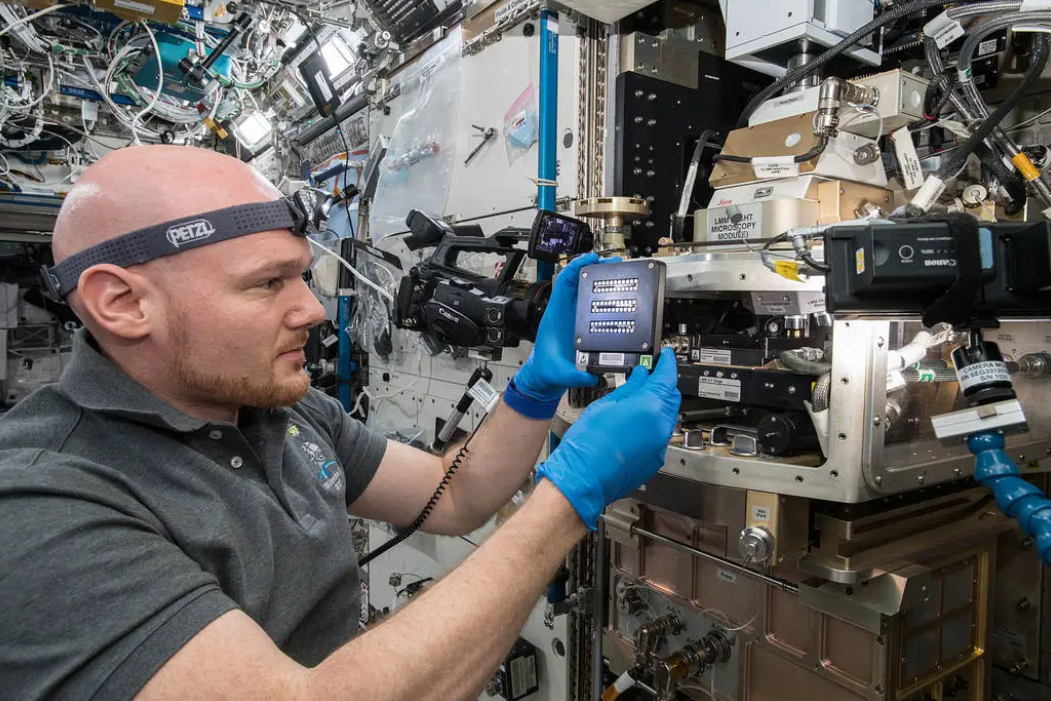As we travel farther into space, clever solutions to problems like engine part malfunctions and other possible mishaps will be a vital part of the planning process.
3D printing, or additive manufacturing, is an emerging technology that may be used to custom-create mission-critical parts. An integral piece of this process is understanding how particle shape, size distribution and packing behavior affect the manufacturing process.
The Advanced Colloids Experiment-Temperature-7 investigation (ACE-T-7) developed for the NASA GRC by ZIN Technologies, Inc. aboard the International Space Station explores the feasibility of creating self-assembling microscopic particles for use in the manufacturing of materials during spaceflight.
These microscopic particles come together like building blocks to create materials with tailored nanostructures, giving scientists the ability to change the behavioral properties of a material according to a set of instructions embedded within the particle.
The ability for materials to self-assemble, and potentially self-repair following a breakdown, will be a key element as we head to deep space destinations, where bringing along extra engine parts and other necessary items may not be an option because of storage limitations aboard the spacecraft. ZIN Technologies was acquired by Voyager Space in March 2023.
